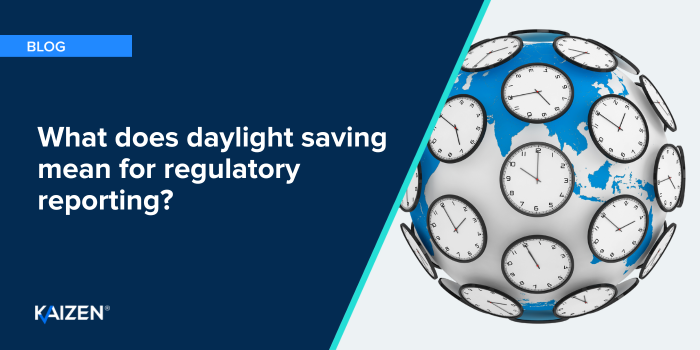Too little, too late – ESRB attempts to amend EMIR Refit

Just as the EMIR Refit has been endorsed and looks to be sailing into EU law for final sign-off, the European Systemic Risk Board throws a potential spanner in the works with a recent letter to the European Commission with its recommendations for Refit.
Some of the recommendations in the letter look to be questionable, burdensome, and too little, too late given what the industry has already gone through as part of the extensive consultation process for EMIR Refit.
Let’s take a look at these in more detail:
Scope of reporting
The ESRB recommends adding additional data fields to support the monitoring and mitigation of systematic risks as required. Adding in additional fields becomes problematic and is counterintuitive in trying to improve data quality.
Planning, preparation and budgets are in full swing as the industry believes the Refit requirements to be final and understood. To ask for more at this late stage from the industry, and outside of the normal legislative process would prove too burdensome.
Quick check
The ESRB recommends that reporting counterparties “should perform a quick, aggregative-level check” on the data that they send to the trade repository. The ESRB goes on to say that these quick checks would come about as a result of amending such items as the Q&As. This shouldn’t be anything new for the majority of counterparties, especially the larger firms, and this recommendation is strange given that counterparties already have an obligation to report completely and accurately.
The EMIR Refit already adds additional controls and checks by both the trade repositories and also the reporting counterparties (much of the industry will have/or are already looking to enhance their checks as part of their own systems and controls process).
Once again, the question should be – would anything outside of the EMIR Refit process that the industry has already started planning for, add any true value?
Reporting handbook
The ESRB recommends that a separate reporting handbook is produced to aid a common understanding on how certain fields and specific scenarios need to be reported. We think the ESRB would have been better to recommend that additional clarity is provided via the existing Level 3 guidance which would support the industry to improve data quality, rather than adding more documentation for firms to manage. This is why we’re seeing the industry want more clarity, and what prompted the trade association best practices document.
The ESRB also goes on to say that regulators’ supervisory attention and actions towards the reporting counterparties could be linked to the reporting handbook. Asking regulators to take enforcement actions based on non-legally binding guidance like the proposed handbook is potentially controversial. The Level 3 Q&A documents have long been a source of contention regarding ‘how’ and ‘if’ they’re legally binding.
Appointment of a responsible officer
The ESRB recommends that reporting counterparties make a mandatory appointment of an officer for all reporting. The requirement for a responsible individual already exists in the form of ‘Senior Management Functions‘ within the UK, and under the ‘Controlled Functions’ (which will already look after reporting matters) that many EU regulators also impose on counterparties to have in place, which will be supported by the relevant teams within those counterparties.
Machine-readable/ automated reporting
The ESRB recommends ‘making reporting requirements readable and executable by machines’. This would mean that reporting counterparties would need to adapt their internal risk management and reporting systems, with the ESRB stating that this would ‘contribute to an improvement in the quality of available data more generally and thus to facilitate the monitoring of financial stability risks’.
Moreover, if the Commission were to agree with this proposal, the implementation period would stretch beyond the proposed go-live of EMIR Refit which would bring further issues for the industry.
Flexibility of reporting requirements
The ESRB asks for additional information during times of crisis when trying to monitor systemic risks, which is outside of the mandatory reporting requirements. The industry is used to receiving ad-hoc requests, but they have to be of value in order to assist the regulators, especially during times of market impact to the firms which without clarity (which improving data quality should be about), could be an unnecessary burden.
What’s next?
As ESMA sits on the ESRB and has been involved in these discussions, we hope caution will be exercised in imposing any new/or additional requirements for EMIR Refit at this late stage, especially as reporting counterparties are planning for multiple reporting regime changes. Adding requirements outside the normal process may bring more risks than the industry needs.
- For a conversation about the above or any aspect of EMIR reporting including the upcoming EMIR Refit, please contact us.


